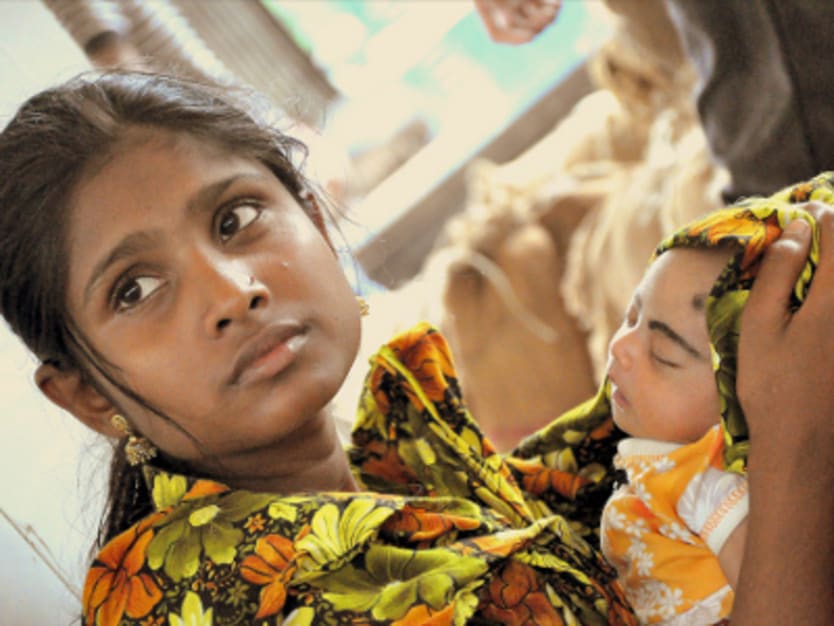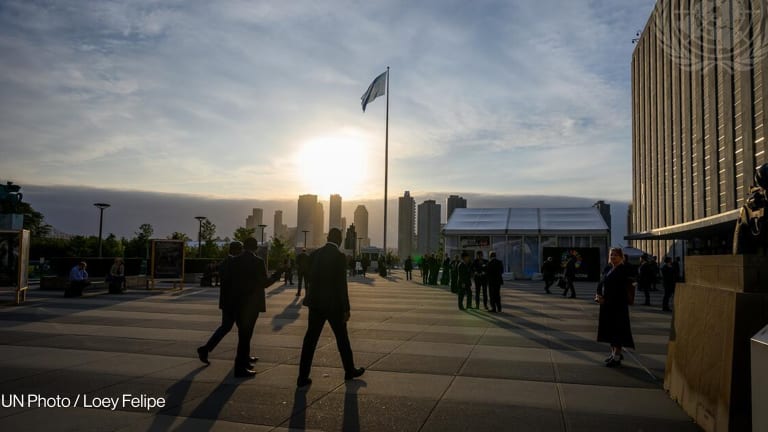
A group of donors are marking the International Day of the Girl Child with new funding pledges for global efforts to end the practice of early child marriages around the world by 2030.
Oct. 11 is the first-ever commemoration of the day, which the United Nations recognized in December 2011 following a campaign by Plan International that was first backed by Canada. To mark the event, the nongovernmental organization is launching Because I am a Girl, a global campaign that aims to help 4 million poor girls around the world.
The U.S.-based Ford Foundation committed $25 million to be spent over five years in key countries such as India, Nigeria and Egypt. The money will be channeled through nongovernmental organizations, governments and local communities, among other partners. It will be used to support public-private partnerships, research, evaluation and testing of new interventions, advocacy-related activities, and training for adolescent girls.
The U.N. Population Fund pledged $20 million to the cause. The money will also be disbursed over a five-year period for projects in 12 countries with some of the world’s highest rates of child marriages. These include Guatemala, India, Niger and Zambia.
Both pledges were announced at an Oct. 10 event at the U.S. Department of State, where U.S. Secretary of State Hillary Clinton also committed stronger U.S. support toward addressing child marriages.
The U.S. Agency for International Development, according to Clinton, will partner with Bangladesh on a pilot program that will test new approaches to preventing child marriages and helping keep girls in school. USAID will also work with the President’s Emergency Plan for AIDS Relief on a five-year, $15 million initiative to tackle barriers preventing girls in the Democratic Republic of the Congo from continuing their education, the secretary said.
These initiatives will be supported by efforts from other U.S. government agencies to end child marriages. The State Department, for instance, is expected to highlight the issue in upcoming assessments of the state of human rights around the world.
Two other private foundations committed support to the cause. Clinton said that the MasterCard Foundation will allot $39 million from its $500 million scholarship program to support secondary education in Ghana and Uganda. The John D. and Catherine T. MacArthur Foundation pledged $10 million to improve participation and quality of secondary education for girls.
Stopping the practice of early child marriages by 2030 is a goal first envisioned by The Elders, a group of top global personalities such as former U.N. Secretary-General Kofi Anan and Archbishop Desmond Tutu. The Elders founded the Girls Not Brides: The Global Partnership to End Child Marriage in 2011 to mobilize support for this goal.
Ending child marriages and helping girls get quality education, however, are not the only ways to empower girls around the world, a U.S.-based think tank argues. In a new report, the New America Foundation proposes giving assets such as cash directly to girls. The report explores ways to use technology for girl-targeted social protection programs.
Read more development aid news online, and subscribe to The Development Newswire to receive top international development headlines from the world’s leading donors, news sources and opinion leaders — emailed to you FREE every business day.








